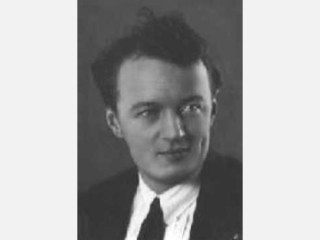
Aleksandr Nikolaevich Afinogenov biography
Date of birth : 1904-04-04
Date of death : 1941-11-09
Birthplace : Ryazan, Russian
Nationality : Russian
Category : Famous Figures
Last modified : 2010-11-15
Credited as : Dramatist, The Eccentric (1929),
The Soviet dramatist Aleksandr Nikolaevich Afinogenov mixed lyricism, melodrama, and comedy in his portrayals of average Russians in everyday pursuits.
On April 4, 1904, near Ryazan, Russia, Aleksandr Afinogenov was born. His father was a railroad worker, an active Communist, and, after the Revolution, a writer. Aleksandr grew up in proletarian surroundings during the consolidation of proletarian ideology. The characters in his plays often come from the proletariat and reflect that point of view. Afinogenov was too young to take part in the Revolution, which began in 1917. He graduated from the Moscow Institute of Journalism in 1924.
His first play, Robert Tim, was performed in 1924. During the 1920s Afinogenov's creative writing took second place to his political activity. He joined the Communist party in 1922 and soon became a leader of Proletcult, the organization for the development of proletarian culture. Afinogenov's task was to train playwrights and actors and disseminate proletarian literary views. He directed the First Moscow Workers' Theater of Proletcult during the late 1920s; it performed plays designed to uplift the workers' spirit and encourage the building of communism. Specifically for this purpose, Afinogenov adapted and staged a story by Jack London, the American author, as well as several of his own plays. One play was The Eccentric (1929), which depicts the obstacles that bureaucratism and careerism present to the progress of communism.
The most popular, and sensational, of Afinogenov's plays is Fear, first performed in 1930 by the Moscow Art Theater. At the time Afinogenov was deeply dedicated to furthering a new Communist art, based on Marxist principles of dialectical materialism. He was not blind, however, to the corruption and weaknesses in the Soviet bureaucracy, and he did not favor using terror to advance communism. Fear portrays a research scientist who is partial to the views of the prerevolutionary intelligentsia. The scientist publishes a study of those sense stimuli that condition the behavior of high Soviet bureaucrats. Fear is found to be the main stimulus. Although one character defends the Soviet bureaucracy as preferable to the czarist bureaucracy, the public saw Fear as a direct attack on the regime, and the play was attacked by orthodox Marxist critics. It became popular again in the 1950s, when the Soviet premier, Nikita Khrushchev, attacked the bureaucratic legacy of Joseph Stalin.
During the 1930s Afinogenov continued in his dual capacity as director and playwright. His Salute to Spain! (1936) praised the Republican forces in the Spanish Civil War. His dramas of the late 1930s were lyrical, psychological portrayals of everyday Soviet life. On the Eve (1941) was an expression of outrage at the Nazi invasion of the Soviet Union. Afinogenov was killed on Nov. 4, 1941, during an aerial bombardment of Moscow.
His diaries and notebooks, published in 1960, are a valuable source of information on Soviet writers of the 1920s and 1930s. His plays are very popular in the Soviet Union.
There is no adequate biography of Afinogenov in English. In Russian see A. Karaganov, Aleksandr Afinogenov (1964). Afinogenov's work is discussed in Vera Alexandrova, A History of Soviet Literature, 1917-1964: From Gorky to Solzhenitsyn (1963). For a more detailed discussion of Afinogenov's drama in the context of Soviet theater consult Spencer E. Roberts, Soviet Historical Drama: Its Role in the Development of a National Mythology (1965).
















